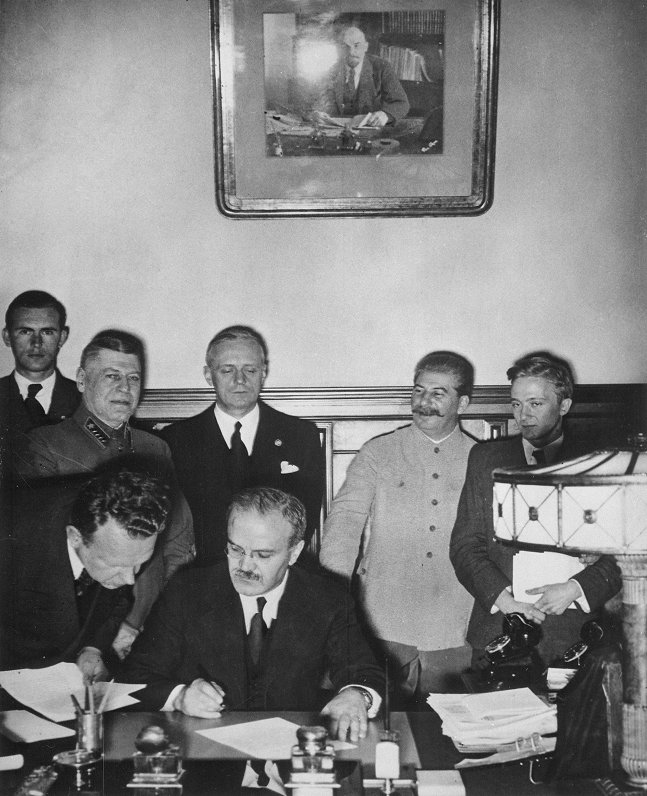In their Joint Statement, the Chairmen of the Foreign Affairs Committees of the Parliaments of Estonia, Latvia, Lithuania and Poland call on the State Duma and the authorities of the Russian Federation to withdraw a proposal that would revoke and invalidate an earlier Duma resolution condemning the Molotov-Ribbentrop Pact and its secret protocols.
In 1989, the Congress of People’s Deputies of the USSR adopted a resolution that condemned the 1939 Soviet-German Non-Aggression Treaty.
“We call on the State Duma and the authorities of the Russian Federation to make all possible efforts to base the relations with their neighbours on the international law, the respect of their sovereignty and territorial integrity, the restoration of trust in international relations and reestablishment of good neighbourly relations in our part of Europe. In such efforts the first necessary step will be the withdrawal from proceeding the proposal,” the Joint Statement says.
“World War II caused the death of tens of millions of people, occupation of the Baltic States, and the partition of Poland between two totalitarian powers [which were] the direct results of the Molotov-Ribbentrop Pact and its secret protocol. The proposed law is an attempt to distort those events and to justify the use of military force against smaller neighbours, and this is done at the expense of the memory of the victims of the World War,” Chairman of the Foreign Affairs Committee of the Riigikogu (Parliament of Estonia) Enn Eesmaa said.
Rihards Kols, Chairman of the Latvian Saeima's Foreign Affairs Committee said:
"It is an attempt to distort history in order to justify the bloody crimes committed by two 20th century totalitarian regimes - Stalinism and Nazism. Such attempts are especially dangerous, as they seek not only to justify, but even to support the current policy of the Russian Federation against Ukraine, Georgia and Moldova, in order to pave the way for further violations of international law and threats to the independence and sovereignty of neighboring countries."
The Joint Statement of the Chairmen of the Foreign Affairs Committees underlines that the proposal on revoking the 1989 resolution will not have any impact on the unequivocal condemnation of the Pact and its secret protocol as an illegal act under international law. Likewise, it will not affect its assessment by historians.
The Joint Statement points out that the rehabilitation of the totalitarian imperialism in the proceeded bill is an attempt to justify the rejection of the equal protection of sovereign states under international law. “It is particularly dangerous since it justifies, in fact affirms the current policy of the Russian Federation towards Ukraine, Georgia and Moldova, and opens the path for further potential violations of the international law at the expense of independence and sovereignty of the neighbouring countries,” the Chairmen of the Foreign Affairs Committees write.
The full text of the Statement of the Chairmen of the Foreign Affairs Committees can be read in the attachment to this story.
The Joint statement comes not long after the foreign ministries of the Baltic states expressed similar concerns to Russian ambassadors, as previously reported by LSM.




























